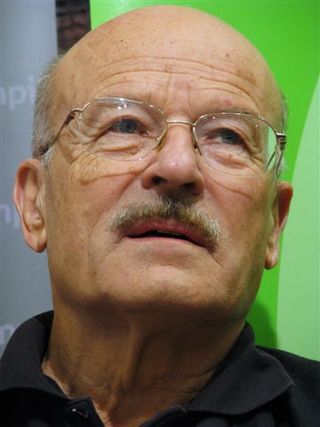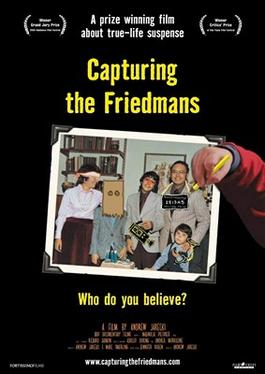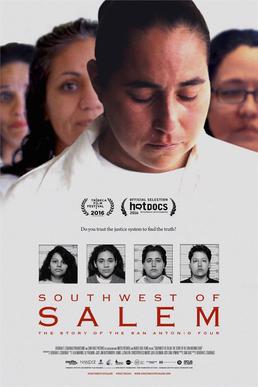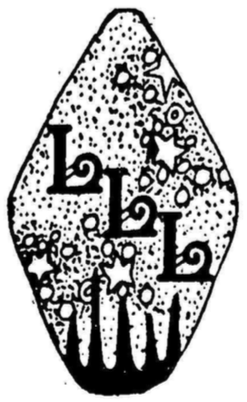
Volker Schlöndorff is a German film director, screenwriter and producer who has worked in Germany, France and the United States. He was a prominent member of the New German Cinema of the late 1960s and early 1970s.

Greville Ewan Janner, Baron Janner of Braunstone, was a British politician, barrister and writer. He became a Labour Party Member of Parliament for Leicester in the 1970 general election as a last-minute candidate, succeeding his father. He was an MP until 1997, and then elevated to the House of Lords. Never a frontbencher, Janner was particularly known for his work on Select Committees; he chaired the Select Committee on Employment for a time. He was associated with a number of Jewish organisations including the Board of Deputies of British Jews, of which he was chairman from 1978 to 1984, and was later prominent in the field of education about the Holocaust.

Capturing the Friedmans is a 2003 HBO documentary film directed by Andrew Jarecki. It focuses on the 1980s investigation of Arnold and Jesse Friedman for child molestation. The film premiered at the 2003 Sundance Film Festival where it received critical acclaim as well as the Grand Jury Prize: Documentary. The film went on to be nominated for the Academy Award for Best Documentary Feature.
"The idiot defense" is a satirical term for a legal strategy where a defendant claims innocence by virtue of having been ignorant of facts of which the defendant would normally be expected to be aware. Other terms used for this tactic include "dumb CEO defense", "dummy defense", "ostrich defense", "Ken Lay defense", and "Sergeant Schultz defense". The first known instance of the idiot defense was by John Henry Stafford, a lawyer in Jackson, Tennessee who was also known as Yankee John. He used it in the defense of Marlin Heady, a moonshiner. The charges were all, allegedly, dropped.
The Fells Acres day care sexual abuse trial took place in the Commonwealth of Massachusetts following charges initially lodged in the mid-1980s against family members who operated a day care center, Fells Acres Day School, in Malden, Massachusetts. The facility had been opened in 1966 by Violet Amirault (1923–1997). She and her two children—son Gerald Amirault and daughter Cheryl Amirault LeFave —were tried for sexually abusing children at their facility. Gerald was tried in 1986 while his sister and mother were tried in 1987. All three were convicted and sentenced to prison. The Amiraults deny the charges, which supporters regard as a conspicuous example of day-care sex-abuse hysteria.
Day-care sex-abuse hysteria was a moral panic that occurred primarily during the 1980s and early 1990s, and featured charges against day-care providers accused of committing several forms of child abuse, including Satanic ritual abuse. The collective cases are often considered a part of the Satanic panic. A 1982 case in Kern County, California, United States, first publicized the issue of day-care sexual abuse, and the issue figured prominently in news coverage for almost a decade. The Kern County case was followed by cases elsewhere in the United States, as well as Canada, New Zealand, Brazil, and various European countries.

The Boys of St. Vincent is a 1992 Canadian television miniseries directed by John N. Smith for the National Film Board of Canada. It is a two-part docudrama inspired by real events that took place at the Mount Cashel Orphanage in St. John's, Newfoundland, one of a number of child sexual abuse scandals in the Roman Catholic Church.
The Wenatchee child abuse prosecutions in Wenatchee, Washington, US, of 1994 and 1995, were the last "large scale Multi-Victim / Multi-Offender case" during the hysteria over child molestation in the 1980s and early 1990s. Many poor and intellectually disabled suspects pled guilty, while those who hired private lawyers were acquitted. Eventually all those accused in these cases were released, and the authorities paid damages to some of those originally accused.
Strickland v. Washington, 466 U.S. 668 (1984), was a landmark Supreme Court case that established the standard for determining when a criminal defendant's Sixth Amendment right to counsel is violated by that counsel's inadequate performance.
Bernard F. Baran Jr. was an American day care employee wrongfully convicted in the day-care sex-abuse hysteria of the 1980s and 1990s that was spawned by the McMartin preschool trial.

Bernie is a 2011 American biographical black comedy thriller film directed by Richard Linklater, and written by Linklater and Skip Hollandsworth. The film stars Jack Black, Shirley MacLaine and Matthew McConaughey. Filmed entirely in documentary-esque drama and true crime elements, the film is based on Hollandsworth's January 1998 article, "Midnight in the Garden of East Texas", published in Texas Monthly magazine and covering the 1996 murder of 81-year-old millionaire Marjorie Nugent (MacLaine) in Carthage, Texas, by her 39-year-old companion, Bernhardt "Bernie" Tiede (Black).
Bernhardt Tiede II is an American mortician who was convicted of the November 19, 1996 murder of his companion, wealthy 81-year-old widow Marjorie "Marge" Nugent, in Carthage, Texas. He was 38 at the time of the murder.
United States v. Valenzuela-Bernal, 458 U.S. 858 (1982), is a United States Supreme Court case that determined the constitutionality of deporting aliens who might give testimony in criminal alien smuggling prosecutions. Because deporting alien witnesses might take away a testimony that would be both “material and favorable” to the defendant, it gives rise to a potential motion from the defense to dismiss the indictment under the Compulsory Process Clause of the Sixth Amendment and the Due Process Clause of the Fifth Amendment.
A Marsden motion is the only means by which a criminal defendant can fire a court-appointed attorney or communicate directly with a judge in a California state court. It is based on a defendant's claim that the attorney is providing ineffective assistance or has a conflict with the defendant. The name comes from the case People v. Marsden. A defendant is required to know to make a challenge of ineffective assistance of counsel, and make one, or the claim of ineffective assistance of counsel or the issue cannot be raised on appeal. There is no requirement to notify a defendant of such a requirement.
Glasser v. United States, 315 U.S. 60 (1942), was a landmark decision of the US Supreme Court on two issues of constitutional criminal procedure. Glasser was the first Supreme Court decision to hold that the Assistance of Counsel Clause of the Sixth Amendment required the reversal of a criminal defendant's conviction if his lawyer's representation of him was limited by a conflict of interest.
Ham v. South Carolina, 409 U.S. 524 (1973), was a United States Supreme Court decision concerning examinations of prospective jurors during voir dire. The Court held that the trial court's failure to "have the jurors interrogated on the issue of racial bias" violated the petitioner's due process right under the Fourteenth Amendment. This right does not extend to any question of bias, but it does not preclude questions of relevant biases.

Southwest of Salem: The Story of the San Antonio Four is a 2016 documentary directed by Deborah Esquenazi and produced by Sam Tabet about the persecution of four Latina lesbians in 1997 and 1998 who allegedly gang-raped two young girls. The story investigates the wrongful convictions of Elizabeth Ramirez, Cassandra Rivera, Kristie Mayhugh, and Anna Vasquez in the midst of the Satanic Panic witch-hunt era of the 1980s and 1990s.

Prey is a 2019 Canadian documentary film, directed by Matt Gallagher. An examination of sexual abuse in the Catholic Church, the film centres on Rod McLeod, a man who is suing the church for restitution after having been abused in childhood by priest William Hodgson "Hod" Marshall, and includes testimonial interviews from some of Marshall's other victims.

Lincoln Legion of Lesbians (LLL) was a lesbian feminist collective in Lincoln, Nebraska, that sought to destigmatize lesbianism and build lesbian community. The collective sponsored community events open exclusively to women and girls, advocating feminist separatism.
Kimmelman v. Morrison, 477 U.S. 365 (1986), was a decision of the U.S. Supreme Court that clarified the relationship of the right to effective assistance of counsel under the Sixth Amendment to other constitutional rights in criminal procedure. In this case, evidence against the defendant was probably seized illegally, violating the Fourth Amendment, but he lost the chance to argue that point due to his lawyer's ineffectiveness. The prosecution argued that the defendant's attempt to make a Sixth Amendment argument via a habeas corpus petition was really a way to sneak his procedurally defaulted Fourth Amendment claim in through the back door. The Court unanimously disagreed, and held that the Fourth Amendment issue and the Sixth Amendment issue represented different constitutional values, and had different requirements for prevailing in court, and therefore were to be treated separately by rules of procedure. Therefore, the habeas corpus petition could go forward. In its opinion, the Court also gave guidance on how to apply its decisions in Stone v. Powell and Strickland v. Washington.







